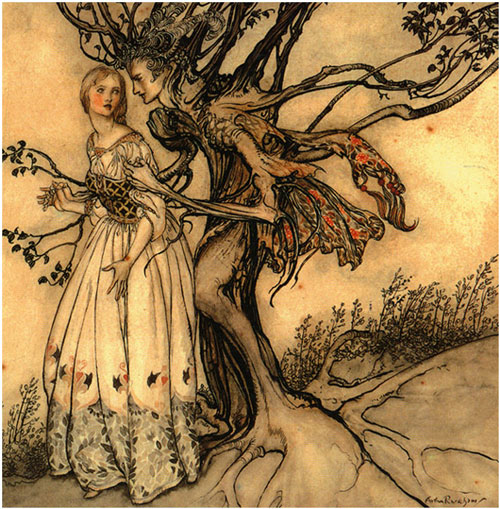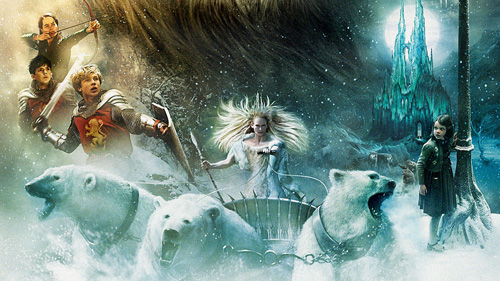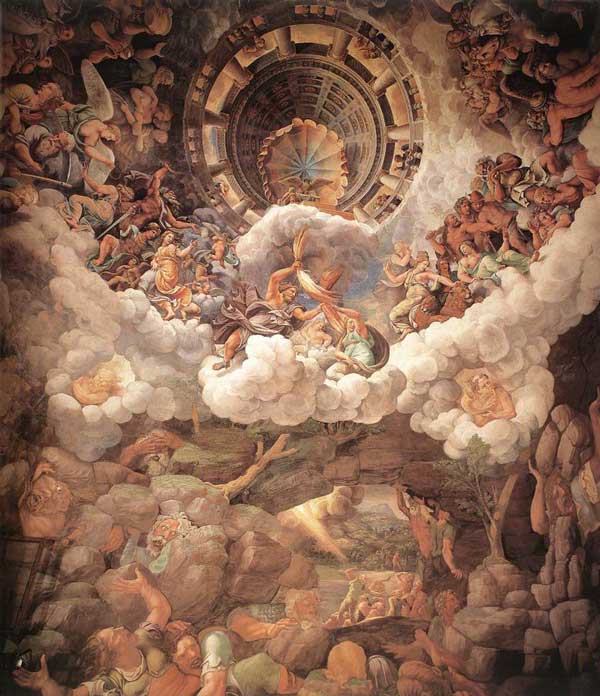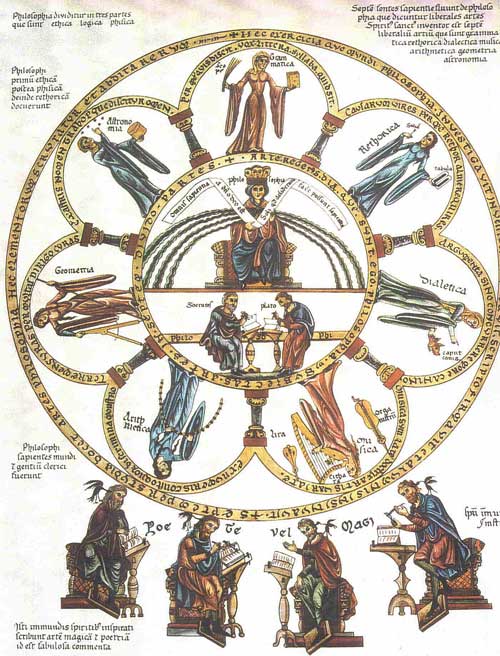Words are how the truth comes to us. They’re also how it can be taken away. Seen only as symbols and grammar, truth and lies are made from the same raw material. Your only hope is discernment. Your life depends on it.

Tolkien and Lewis regarded the fairy tale as a perfectly suited literary vehicle for expressing eternal truth. Lewis credits Tolkien and a mutual friend with helping him see that his love of myth and fairy tale blinded him to, yet prepared him for, the Gospels. He reluctantly came to believe the Gospels were eyewitness accounts of a “true myth”.1

“I wrote this story for you, but when I began it I had not realized that girls grow quicker than books. As a result you are already too old for fairy tales, and by the time it is printed and bound you will be older still. But some day you will be old enough to start reading fairy tales again.”2
Mythology or History?
Another term used as a pejorative is mythology.
All mythology is presumed myth as the victors decide what is official history. The history of the defeated is, by definition, written by outlaws. A generation later the history of the defeated is mythology or conspiracy if it’s remembered, at all.

It’s helpful to think of mythology as collections of potential truths inconvenient to the succession of political power. Likewise, “History” is as likely to be the glorification of bureaucrats and technocrats as an accurate re-telling of the facts.
A series of time-related truths, thoroughly vetted and discerned, is not mythology or conspiracy; it’s history.
Trivium & Quadrivium
The subjects of history and philosophy were considered to be so demanding, yet so important, that they weren’t even presented to the student until after they’d studied the subjects of the trivium (Grammar, Logic, Rhetoric) and, ideally, those of the quadrivium (Arithmetic, geometry, music, astronomy).3

“These seven heads were supposed to include universal knowledge. He who was master of these was thought to have no need of a preceptor to explain any books or to solve any questions which lay within the compass of human reason, the knowledge of the trivium having furnished him with the key to all language, and that of the quadrivium having opened to him the secret laws of nature.”4
“… When a few were instructed in the trivium, and very few studied the quadrivium, to be master of both was sufficient to complete the character of a philosopher … The candidate, having reached this point, is now supposed to have accomplish the task upon which he had entered – he has reached the last step, and is now ready to receive the full fruition of human learning.”5
“Some day you’ll be old enough”
The ability to grasp eternal truths and history and bring them to bear on decisions is a high achievement of a classical education. Only philosophy, by attempting to comprehend meaning, imposes greater demands for greater rewards.
“Some day you’ll be old enough” to start reading fairy tales again to glean eternal truths. Someday you’ll be educated enough to distinguish real history from stories convenient to political power.
Words are how the truth comes to us. They’re also how it can be taken away. Seen only as symbols and grammar, truth and lies are made from the same raw material. Your only hope is discernment. Your life depends on it.
- A 1931 letter to childhood friend Arthur Greeves, Lewis credits Tolkien (and mutual friend Hugo Dyson). Paragraph reworded and reordered from an article written by Bruce Edwards (https://erlc.com/article/c-s-lewis-051101). ↩
- The Lion, the Witch and the Wardrobe by C.S. Lewis ↩
- Cathedral Schools of the early Middle Ages (527) on which the curriculum of Medieval universities were based (https://en.wikipedia.org/wiki/Cathedral_school) ↩
- Hist. of Philos. Vol ii. P. 337 ↩
- The symbolism of Freemasonry: Illustrating and Explaining its Science and Philosophy, it’s Legends, Myths, and Symbols. By Albert Gallatin Mackey, M.D., 1869. ↩

